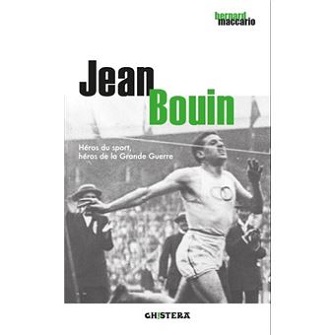Jean Bouin, born in Marseille in 1888 and deceased at the start of the First World War in 1914, is an athlete known by all French people at least by name, or at least by those who frequent the stadiums. This book recounts his life as an athlete and the beginnings of the sports ‘culture’ in France.
It was in 1888, the year of his birth, that sport began to develop in France, coming from England, with athletics. Pierre de Coubertin would use these clubs and sports associations to revive the Olympic Games in 1896 in Athens. At that time, Jean Bouin was still a child. He would shine in the stadiums, win, conquer, and be defeated in 1912 at Stockholm in the 5000 meters. Then came the war, where he would fall in the field of honor.
Bernard Maccario explores the history of the birth of sport in France, a genesis that started after the 1871 defeat with gymnastics societies. Parisian clubs like the Racing Club and Stade Français would follow, true precursors of this English sportsmanship spirit.
This book describes the history of sport in France, whose beginnings were hard to accept by a society not accustomed to the challenging spirit of the English. Aristocrats initially promoted sports practice in tournaments where there was only one participant; it didn’t matter because one had to break a record, theirs or someone else’s. Always higher, faster.
Through Jean Bouin, we revisit the entire saga that molded the youth into embracing the spirit of taking on challenges. The challenge of the Great War, where Jean Bouin would particularly distinguish himself, was thus well-prepared to forge victory.
This work also covers this thirty-year period (1888-1918) during which society transitioned into the modern era. A century already! This book is a valuable witness to these transformations.
Thierry Jan


